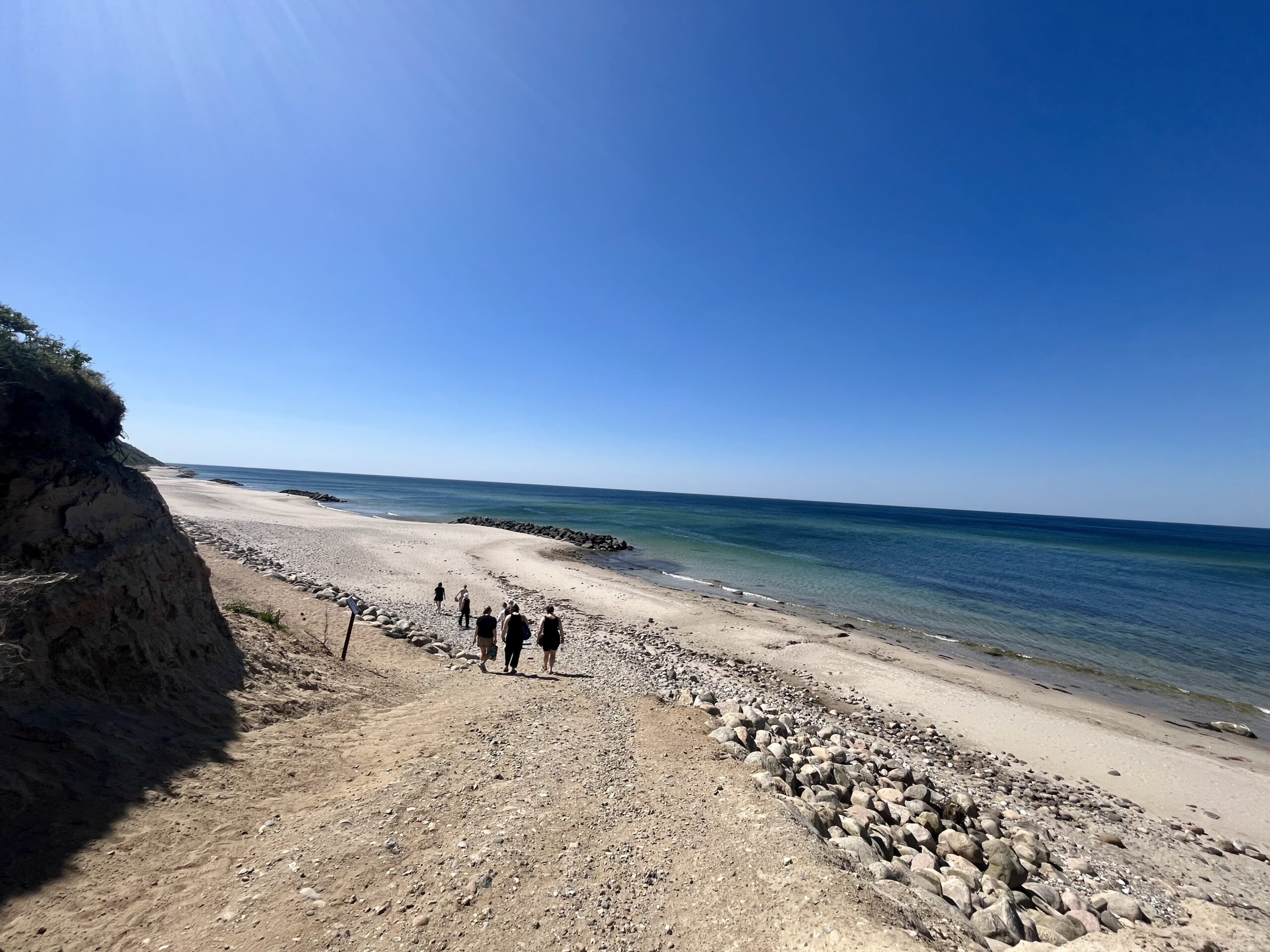A fellowship at the Technical University of Denmark (DTU)
I am excited to share my experience with a fellowship programme that has been a real eye-opener! Thanks to Skills4EOSC and the fellowship programme “Unlocking opportunities in Open Science and FAIR data” that supports the collaboration between professionals from different institutions by sponsoring short secondments for data experts in the field of Open Science.
Skills4EOSC: Skills for the European Open Science commons: creating a training ecosystem for Open and FAIR science
The need for data professionals such as data stewards, data managers and Open Science specialists is increasing in Europe. There is a need at European level to support and harmonize the training of such data professionals. This “skills gap” is addressed by the Skills4EOSC project.
The purpose of Skills4EOSC is to form a network of Competence Centers to support the training of European researchers and data professionals in handling research data, FAIR data and Open Science. Skills4EOSC also wants to harmonize this training and education within the European Open Science Cloud.
Through this initiative, nine travel grants were awarded. I am honored to have been selected as one of these nine fellows and completed my fellowship stay at DTU and DTU Library.
Read more about the fellowships: www.skills4eosc.eu/participate/fellowship-programme
Project plan
The joint project with DTU and DTU Library was planned for two months. DTU Library is responsible for supporting the departments at DTU in implementing the new Research Data Management (RDM) policy. Why me? Well, I come from a background in both RDM and chemistry, which makes me a good fit to support the Chemical Engineering department with the RDM implementation.
The aim of the project was to clarify strengths and obstacles for RDM practices in the daily work of chemistry research groups by assessing the current state of RDM and identifying how best to support researchers.
Building awareness: From theory to practice
My journey began with a clarifying workshop titled “Raising awareness and improving practices.” This was a great chance to meet researchers from one of the department’s research centers and introduce them to RDM concepts. We talked about data storage, archiving, and even handling physical samples while the participants reflected on their own research data management. It was fantastic to see the great workshop atmosphere: The discussions flowed and we identified areas where RDM could have a real impact. The workshop was well received so we decided to roll it out to two more research centers!
Deeper Dives: Challenges and solutions
To get a deeper understanding, I also conducted short interviews with researchers. Here’s what I discovered: while everyone recognizes the importance of data management, there’s a disconnect between the official RDM guidelines and the day-to-day workflows of the researchers. The problem at the Chemical Engineering department? Current storage solutions don’t always align with how researchers naturally organize their data.
Key Takeaways: Collaboration and communication are key!
These initial findings highlight a crucial point: effective RDM goes beyond just teaching theory. Collaboration with researchers is essential! Instead of a top-down approach, researchers need to be involved in shaping RDM practices. Plus, having a dedicated support team from the library and IT department makes a huge difference. But researchers also need a contact person who can address their specific challenges and gather feedback.
Working together for success
Throughout this project, I’ve been collaborating closely with the DTU Library RDM team. The communication with the contact persons of the library was very friendly from the very beginning and I had the impression from the first meeting that great importance was attached to the joint planning and realization of the fellowship. This impression was confirmed during my time on site. I felt very well challenged and supported. There were always invitations to lectures and thematically appropriate workshops that could be easily integrated into the workload. This gave me the opportunity to look at the work from a different perspective.

Bouncing ideas off each other and learning from their experiences has been very valuable. I gained an insight into the diverse activities in a library and got an overview of the essential work processes. I learnt how the review process of a data publication works, which is a really important new skill.
Conclusions and outcomes
It was a great experience to contribute my expertise to the conception and implementation of research data management (RDM) workshops at DTU. Within my work for NFDI4Chem, I had not yet had the opportunity to collaborate so closely with a chemistry department over several weeks.
Working together with the chemistry department and the DTU Library proved to be valuable, even though not all the suggestions and support offered by me or the library were fully embraced. This experience highlighted that such projects depend not only on expertise but also on interpersonal skills. Ultimately, it all comes down to communication.
I also gained a deeper understanding of the wide range of useful services offered by DTU Library. Unfortunately, many researchers are not yet aware of these opportunities, meaning they do not benefit from them.
I look forward to seeing how the gap between RDM theory and its practical implementation in chemical research can be bridged in the future.